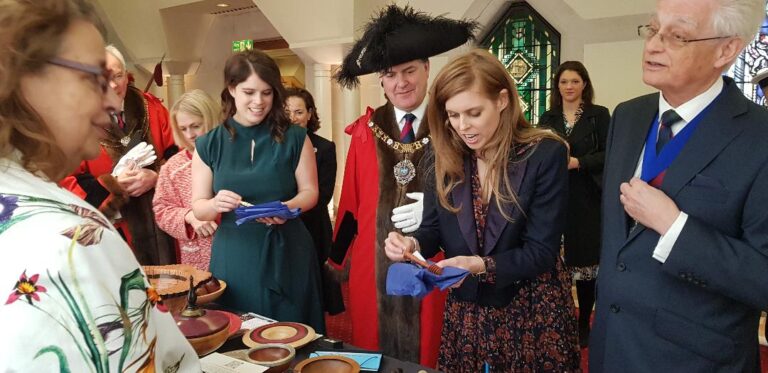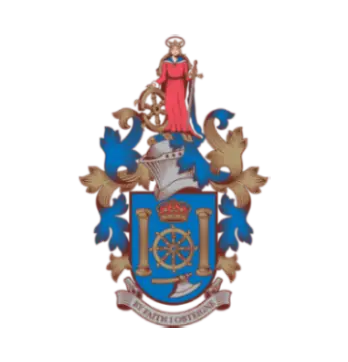The Turners’ Company Charity
An Historical Perspective
For 400 years – from bread for the poor in Ludgate in the 1600s, to supporting students suffering ‘device poverty’ during Covid 19 – the Company’s history describes how, from its earliest days “the Turners, in common with most other Livery Companies, inherited a tradition of charity and benevolence”.
There are many references in early Court Minutes to our charitable endeavours even though we have never been a wealthy company.
On 20 May 1627, the Court of Assistants ordered that bread should be distributed to the poor in Ludgate, Newgate and Wood Street. There are also many references to funds being granted to members of the Company who had fallen on hard times, to widows, and sometimes to their children.
An example being a “maintenance grant to Thomas Audley, the son of Robert Audley, a member of the Company, being a poor scholar in the University of Cambridge for some Exhibition to be bestowed upon him for his maintenance at the University”.
In 1630 turners John Towle and John Glascock fell on hard times and had many unsold chairs on their hands. The Court decided to buy twelve dozen of Mr Towle’s chairs and eight dozen of Mr Glascock’s chairs, which were eventually sold on with the Beadle, Goodman Fletcher, allowed twopence for every dozen sold. This is an early version of the Charity’s “Turning for Good” initiative, described below.
Early accounts show that very many payments, mostly small in amount, but large in aggregate, were made for purposes of charity. In 1800 the Court Minutes showed that six or seven poor widows or “Pensioners” were paid 10s 6d each from the Company’s Poor Box by the Upper Warden as an “annual bounty”.
Charitable giving, however, was intermittent for most of the Company’s first three hundred years. It was not until 1903 that the presentation of lathes began – following a proposal by Past Master Frederick Oldershaw Smithers.
In 1908 the Court began to make a number of small grants, of from five to ten guineas, to several charities of a general nature; but frequently these turned out to have been given by the Master or Wardens or some member of the Court in the name of the Company.
By April 1914 some sixty lathes had been presented to industrial and reformatory schools and homes for boys and girls throughout England, Wales, Scotland and Ireland. The practice lapsed with the outbreak of the First World War and the Company entered into another period of financial stringency.
After the Richard Gardner Williams Bequest of some £48,000, the Company’s fortunes were transformed and in 1965 the presentation of lathes was resumed.
There are today 111 Livery Companies in the City of London, with over 40,000 members. Together they give over £40 million annually to a wide range of beneficiaries and other charities, making them one of the highest giving groups in the UK.
The Turners’ Company Charitable Trust
As part of this enormous charitable endeavour, the Turner’s Company Charitable Trust (the ‘Charity’), supports turning through competitions and exhibitions, bursaries and other educational training, as well as working with the professional and amateur turning associations in the UK.
It is managed on a day-to-day basis by the Charity Committee under the Chairmanship of a Court Assistant, with Liverymen as members. The Chairman of the Craft Committee also attends the Charity Committee as an ex-officio member.
The Committee was first established in 2006 and meets at least three times a year. The Charitable Trust itself is overseen by a board of Trustees, comprising the Master, Deputy Master, two Wardens and the Chair of the Charity Committee. It was recently decided that the Deputy Master should be the Chair of the Trustees.
Where does the money come from?
The Turner’s Company lacks the inherited land, buildings and capital which enable some Livery Companies to give very generously. The Company makes an annual donation to the Charity and other funds come by way of the Charity’s own investment portfolio, donations from members of the Company and occasional bequests. Each year, the Charity has a budget of around £60,000 for charitable purposes.
Taking a leading role in the renaissance of the craft, the Company and its Charity support a wide range of educational, training, and professional activities, often through the provision of lathes, tools and training on a long-term basis. Part of the programme is focused on schools caring for children with special needs.
The Charity helps by making grants to other charities or voluntary bodies, and by acting as an umbrella and resource body to appropriate charitable causes throughout the UK, with a particular focus on the City of London.
‘Turning for Good’
Under the leadership of Melissa Scott (Master 2020/22) and her “Turning for Good” initiative during the Covid Pandemic, the Charity provided substantial funding, to enable the Company to buy turned stock from members of the Register of Professional Turners. It was, and still is, being used to support events such as the Lord Mayor’s Big Curry Lunch and the Red Cross Fair, both held annually at Guildhall, and the Sheep Drive over London Bridge.

For the Company’s Charitable Trust registered number and Annual Reports, click here
